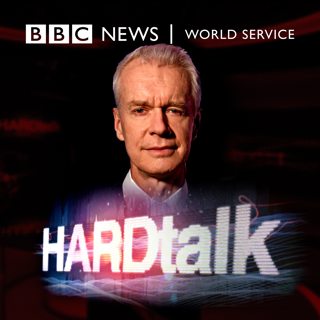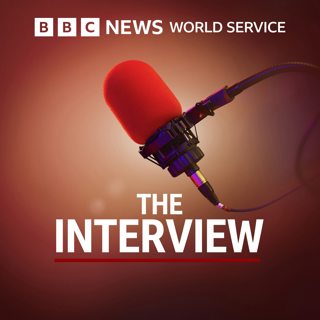
Michael Frayn - Writer
Stephen Sackur speaks to one of Britain's finest writing talents, whose creativity defies a simple label. Yes, Michael Frayn is a renowned playwright whose work has ranged from high farce to cerebral intensity. But he's also an acclaimed novelist and an accomplished translator from the Russian of Chekhov and Tolstoy. Throughout his writing career he's mixed high seriousness with a wicked sense of the absurd. Is laughter an essential tool for the serious writer?
9 Apr 201223min

Hamid Al-Bayati - Iraqi Ambassador to the UN
Should Iraq be doing more to end the bloodshed on its doorstep or does it have its own vested interest in keeping Syria's president Assad in power? While president Nouri Al-Maliki faces criticism for his stance on Syria and his closeness to Iran, the country remains gripped by a rise in sectarian violence. Hamid Al-Bayati represents Iraq at the United Nations. Tim Franks asks him just how much influence Iran has on Iraq's foreign policy.
6 Apr 201223min

Juergen Stark - Former member, Executive Board of the European Central Bank
Lake Como in northern Italy is the venue for an economic conference hosted by the Ambrosetti Forum. The economic policy-makers gathered here are fervently hoping that the worst of Europe's sovereign debt crisis is over - but is it? Stephen Sackur speaks to Juergen Stark who was - until his shock resignation in 2011 - a key figure on the board of the European Central Bank. He quit because he disagreed with the ECB's crisis management. Much has changed in the last few months, but has the eurozone really been saved?
3 Apr 201223min

Sir Alan Ayckbourn - British Playwright
Alan Ayckbourn is often described as the most performed playwright alive in the world. A revival of his play Absent Friends has opened in London's West End. And a new play - his 76th - premieres this summer. After more than 50 years of writing and directing, what is it about Alan Ayckbourn and his portrayal of relationships in the English suburbs that can still fill theatres around the world?
2 Apr 201223min

Nabeel Rajab - President of the Bahrain Centre for Human Rights
A year ago revolution was in the air in the Gulf Kingdom of Bahrain - what about now? After months of violence which killed dozens of protestors, the Bahraini king commissioned an independent inquiry - then he promised to implement sweeping reforms. Stephen Sackur speaks to Nabeel Rajab - one of Bahrain's most outspoken human rights activists. Has this strategically vital Gulf monarchy successfully reformed itself from within?
30 Mars 201223min

Len McCluskey - Leader of Unite, Britain's biggest union
Britain has already seen the first skirmishes in what could be a protracted battle between the Cameron government and organised labour. In the short term, schools and fuel suuplies could be hit by strikes; looking further ahead, there's talk of union protests targeting the London Olympics. Stephen Sackur speaks to Len McCluskey, leader of Unite, Britain's biggest union. He talks of defending workers' rights within the law, and outside it, if necessary. How far is he prepared to go?
28 Mars 201223min

Frank Chikane - South African Head of Presidency, 1999 - 2009
Frank Chikane served in the South African presidential office from the time of Nelson Mandela to Jacob Zuma - so he was privy to what went on behind the scenes. Now he has written a book in which he describes for the first time his account of Thabo Mbeki's removal as South Africa's president. He says it was a painful and humiliating episode for Mr Mbeki and it exposed the deep rivalry at the heart of the ruling African National Congress which continues to divide it today.Zeinab Badawi asks if the ANC become so riven with factionalism and corruption that it can no longer govern effectively.
26 Mars 201223min

Sir Mark Walport - Director, Wellcome Trust
In a special edition of Hardtalk, recorded in front of an audience in the village of Portmeirion in North Wales, Stephen Sackur talks to Sir Mark Walport the Director of the Wellcome Trust. One of the world's most important funding institutions for biomedical research, it distributes close to a billion dollars' worth of grants every year. Much of it goes to cutting edge genetic research which promises to transform human healthcare, but also raises profound ethical questions. Our scientific knowledge is expanding but what about the wisdom with which we use it?
23 Mars 201223min






















